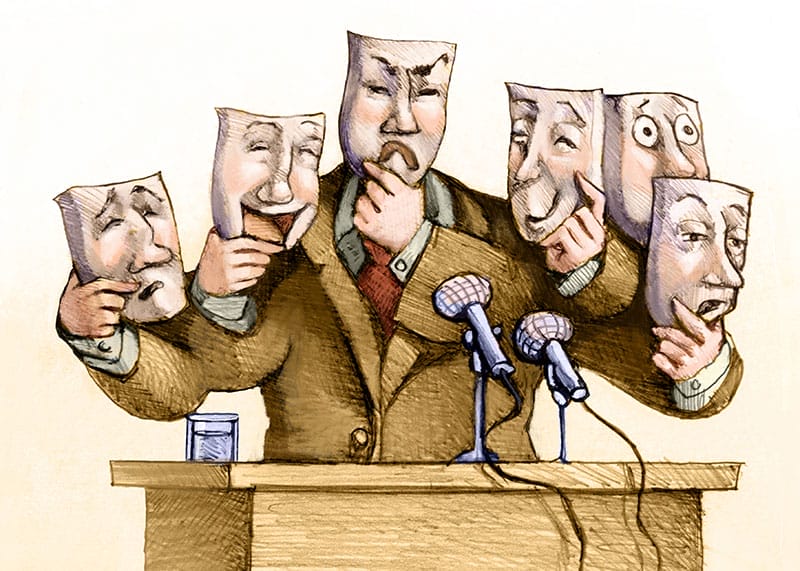 As the 2016 election season heats up, one thing is clear: Outsider politicians are touching a nerve. Who would have predicted the prominence of Donald Trump W68 or the fundraising power of Bernie Sanders?
As the 2016 election season heats up, one thing is clear: Outsider politicians are touching a nerve. Who would have predicted the prominence of Donald Trump W68 or the fundraising power of Bernie Sanders?
And it’s not just a U.S. phenomenon. Insurgents from the left and right are knocking on—if not breaking down—the doors of power in countries as diverse as Finland, Spain, Argentina and Canada.
What’s going on?
The simple answer is that regular people are fed up with the political establishment because they feel the quality of their lives is getting worse, not better. They are worried about their life prospects, they are taking it out on “business as usual” politics, and they are drawn to candidates who vow to take it on and then take it down.
People’s worries are visceral and emotional—part anxiety, part anger, part despondency about the future and part nostalgia about the past.
For the first time since the Industrial Revolution, young Americans today don’t think their lives will be better than their parents’, while their parents worry that “the system” (e.g., Medicare and Social Security) won’t be there for them as they age. Hence, the rise of radical, populist outsiders vowing to crash their way into the corridors of power and break the mold of governing.
Here, conventional drivers of elections—like the unemployment rate—are very misleading. The U.S. unemployment rate today is 5 percent, half its post-financial crisis peak and lower than at any time since late 2007. In fact, 5 percent is just about “full employment” for America—what economists consider the unemployment rate below which inflation will rise (see last month’s decision by the Fed to raise U.S. interest rates). Full employment should mean a contented country, but it certainly isn’t today.
Scratch the economic surface, and it’s easy to see why—and why this benefits candidates like Trump and Sanders. The headline unemployment rate conceals three things about people’s positions in the labor market:
- A lot of “employed” people are doing part-time jobs when they’d prefer to be working full time.
- Many working-age people are no longer looking for work and hence don’t count as unemployed.
- Security and stability of employment are increasing worries for many in full-time jobs.
Then there is inequality. In the past decade, and in the long shadow of the financial crisis and deep recession, real incomes have only increased for the top 20 percent of earners. For the remaining 80 percent, real wages are significantly lower today than they were in 2006. Things have been particularly bad for millennials, despite the fact that they are the best-educated generation in American history in terms of completing college degrees. Taking a longer and broader view, total wages in the U.S. have grown only half as fast as the economy as a whole since the early 1970s.
Globalization and technology are two big drivers that are changing the game. Both have allowed many people to maximize their opportunities and their earning power through creativity and hard work. Both have also lifted more than a billion people out of poverty in developing countries. But globalization and technology have also caused massive employment shifts, displacements and disruptions as the economy transforms to accommodate new skills, industries and worker preferences.
No surprise, then, that many people in the U.S. and Europe are feeling vulnerable; let down by their leaders; and drawn to political candidates who feel their pain, share their anger and promise to do something about it.
One unfortunate casualty is serious policy debate. It’s certainly not for lack of issues. From terrorism and immigration to gun control and climate change, not to mention the budget, debt and deficits, and the tax system, we face significant challenges that deserve serious discussion.
The current crop of controversial candidates don’t have much in common except their shared strategy of relying on emotive signals rather than serious policy analysis. This helps them win media headlines. It may continue to attract voters.
But it’s likely that two things won’t change as a result of this political season.
First, what we might call the “liberal consensus”—a faith in the combination of markets and democracy to do well by most people most of the time—is looking decidedly fragile today, not only in the U.S. but throughout the Western world as well.
Second, the biggest challenge facing the next American president will be to convince the public he or she can ensure that the fruits of globalization and technology are more broadly spread and shared throughout society.
A very large task, indeed, but one I think can and must be undertaken with fervor and commitment.
Editor’s note: The original version of this article appeared on LinkedIn on Jan. 8, 2016.

























